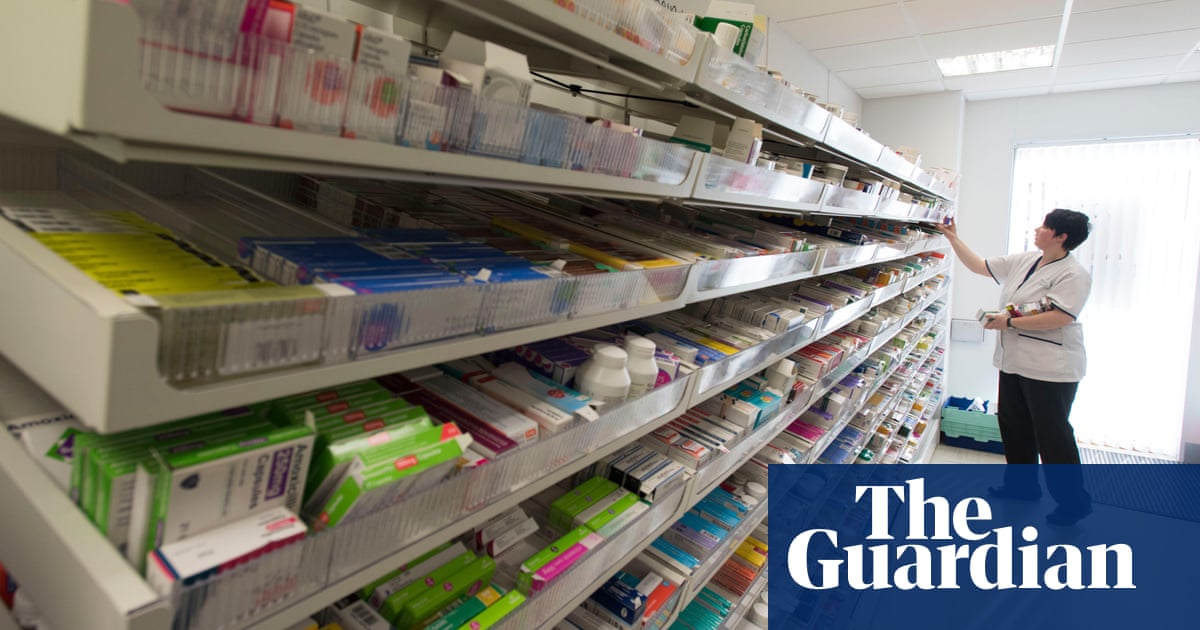
Drug shortages in England are now at such critical levels that patients are at risk of immediate harm and even death, pharmacists have warned.
The situation is so serious that pharmacists increasingly have to issue “owings” to patients – telling someone that only part of their prescription can be dispensed and asking them to come back for the rest of it later, once the pharmacist has sourced the remainder.
Hundreds of different drugs have become hard or impossible to obtain, according to Community Pharmacy England (CPE), which published the report. Widespread and often long-lasting shortages posed “immediate risks to patient health and wellbeing” and caused distress, it said.
“The medicine supply challenges being faced by community pharmacies and their patients are beyond critical,” said Janet Morrison, CPE’s chief executive. “Patients with a wide range of clinical and therapeutic needs are being affected on a daily basis and this is going far beyond inconvenience, leading to frustration, anxiety and affecting their health.
“For some patients not having access to the medicines they need could lead to very serious consequences, even leaving them needing to visit A&E. Medicines shortages are leading to delays in patients being able to access certain critical or potentially life-saving medicines in a timely manner.”
Recent months have seen key medicines for the treatment of type 2 diabetes, ADHD and epilepsy becoming unavailable. Last year saw shortages of HRT, adrenalines and antibiotics.
James Davies, the Royal Pharmaceutical Society’s director for England, said: “Medicines shortages are disrupting treatment for some patients and destabilising their health.”
Drug manufacturers, wholesalers and suppliers needed to collaborate more closely with ministers and the NHS “to ensure a more stable supply of medicines”, he added.
CPE, which represents England’s 10,500 community pharmacies, based its findings on a survey of the views of owners of 6,100 pharmacy premises and 2,000 of their staff. It found:
-
79% of pharmacy staff said that medicine shortages were putting patient health at risk.
-
91% of pharmacy owners had seen a “significant increase” in the problem since last year.
-
99% of pharmacy workers found a drug was unavailable at least weekly, and 72% encountered that several times a day.
Pharmacists are finding themselves on the receiving end of abuse and hostility from patients who are frustrated and angered by not being able to get the drugs they have been prescribed.
“Most people are very understanding, but they are worried and frightened, and inevitably sometimes that boils over and we have people taking it out on us,” said Fin McCaul, the owner of an independent community pharmacy in Greater Manchester. “We have had patients being annoyed and angry, and occasions of people spitting at us. I regularly have staff in tears by the end of the day because of the sheer pressure of it all.”
Overall, 84% of pharmacy staff have experienced aggression from patients, CPE said.
after newsletter promotion
Experts said global supply and manufacturing problems were contributing to drugs being unavailable. But, Morrison added: “Low prices of medicines has made the UK a less attractive market for manufacturers and this is contributing to the reduction in supply chain resilience.”
In a major report last month the Nuffield Trust thinktank warned that drug shortages had become a “new normal” and were being worsened by Brexit.
Mark Dayan, its Brexit programme lead, said: “Nearly every available indicator shows that since 2021 we have experienced a once unthinkable level of medicines shortages again and again. The crisis jumps between products and conditions, with no sign of slowing down.”
While other western countries such as Italy and Germany were also being hit by disruptions to supply, “Brexit creates some extra obstacles for the UK because our market is now partly separated from the wider European pool of supplies,” Dayan added.
Other drugs that remain in short supply include insulin, which Type 1 diabetics need to take, and the liquid form of salbutamol, which is used to tackle serious breathing problems experienced by asthma patients.
A Department of Health and Social Care spokesperson said: “There are around 14,000 licensed medicines and the overwhelming majority are in good supply. Supply issues can arise for a wide range of reasons and are not specific to the UK.”
Source: theguardian.com
















